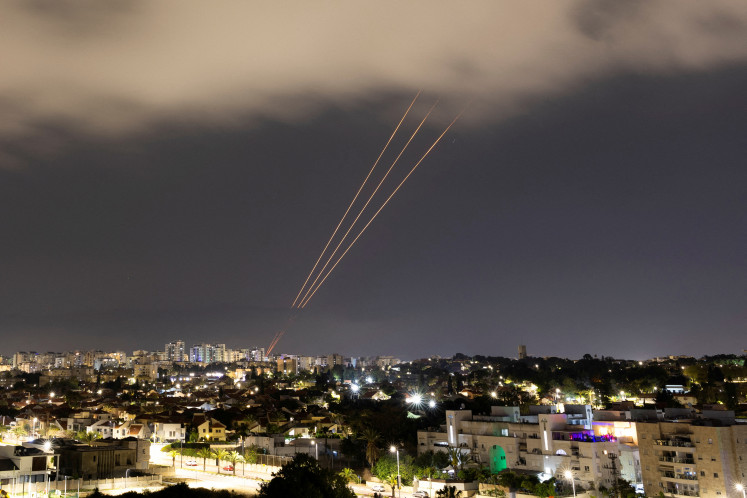Indie cinema lacks screening venues
With the countryâs limited screens and amid a deluge of imported studio films, independent filmmakers are struggling to exhibit their work
Change Size

W
ith the country's limited screens and amid a deluge of imported studio films, independent filmmakers are struggling to exhibit their work.
The head of the Jakarta Arts Council's (DKJ) film committee, Totot Indarto, said in a recent discussion on seeking screening spaces for indie films that Jakarta had only two alternative cinemas: DKJ's Kineforum in Cikini, Central Jakarta, and Paviliun 28 in Kebayoran Baru, South Jakarta.
'There are only 17 alternative cinemas out of 218 cinemas nationwide,' he said.
This contrasted with Japan, he said, where 30 to 100 new small cinemas popped up every year, showing alternative films.
Hikmat Darmawan, a film critic and pop culture observer, said in the discussion that a public initiative was needed to install screening spaces for alternative films, arguing that the government took no interest in culture and art.
'For example, in Ikebukuro, Japan, public-initiated cinemas were in a poor condition but people kept coming to watch films,' he said.
A number of film enthusiasts and professionals have been striving to open access to alternative films.
Filmmakers Amir Pohan and Myrna Paramita, for example, in 2010 established Button Ijo, an initiative that focuses on distributing alternative films.
Currently, Button Ijo offers three programs, which are online film distribution via streaming, offline distribution via specially designed USB flash drives and film funding. The public can access the programs by registering as Button Ijo members.
Cinematographer Sidi Saleh, meanwhile, shared his experience of putting on screenings of alternative films through the Bioskop Merdeka (Independent Cinema) program at three cafes in Jakarta in 2010 and 2011. The screenings were attended, he said, by more than 1,000 film enthusiasts.
'Despite the large number of the viewers and the cafes reporting rising revenues, we had to cease the operation of Bioskop Merdeka, as we faced capital and film-supply problems,' he said, adding that the program had run on donations.
'We could not charge customers for entry because we didn't pay tax,' he said.
According to Bylaw No. 3/2015 on entertainment taxes, entries for film screenings at cinemas are subject to 10 percent tax.
The Jakarta Old Town Revitalization Corporation (JOTRC), meanwhile, plans to cooperate with the Jakarta Arts Institute (IKJ) to turn old buildings on Jl. Malaka 7 and Jl. Malaka 9 in Kota Tua, West Jakarta, into premises for film, theater and music events.
DKJ head Irawan Karseno, however, said he would prefer to optimize existing venues.
'The administration, through DKJ as its technical management unit [UPT], can ask other UPTs, such as the Jakarta Playhouse (GKJ), the Miss Tjitjih Theater and the Usmar Ismail Film Center, to screen films at their venues,' he said. (prm)









